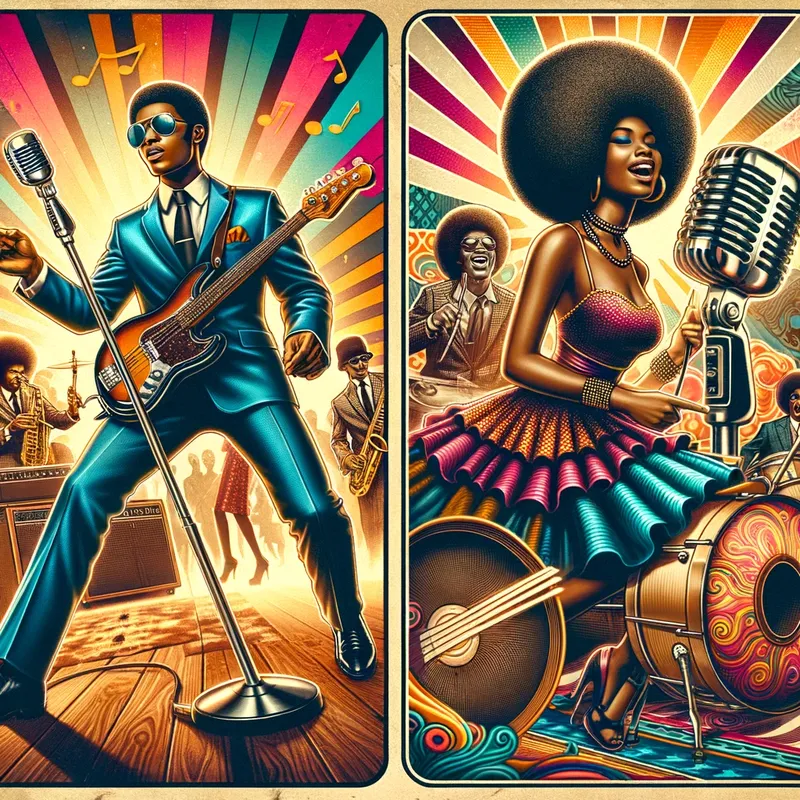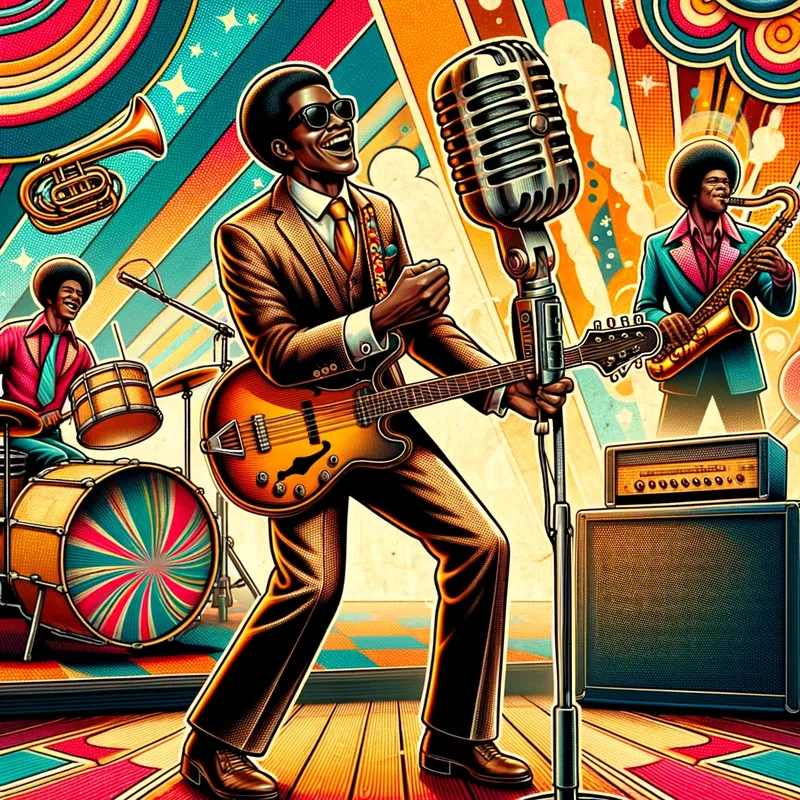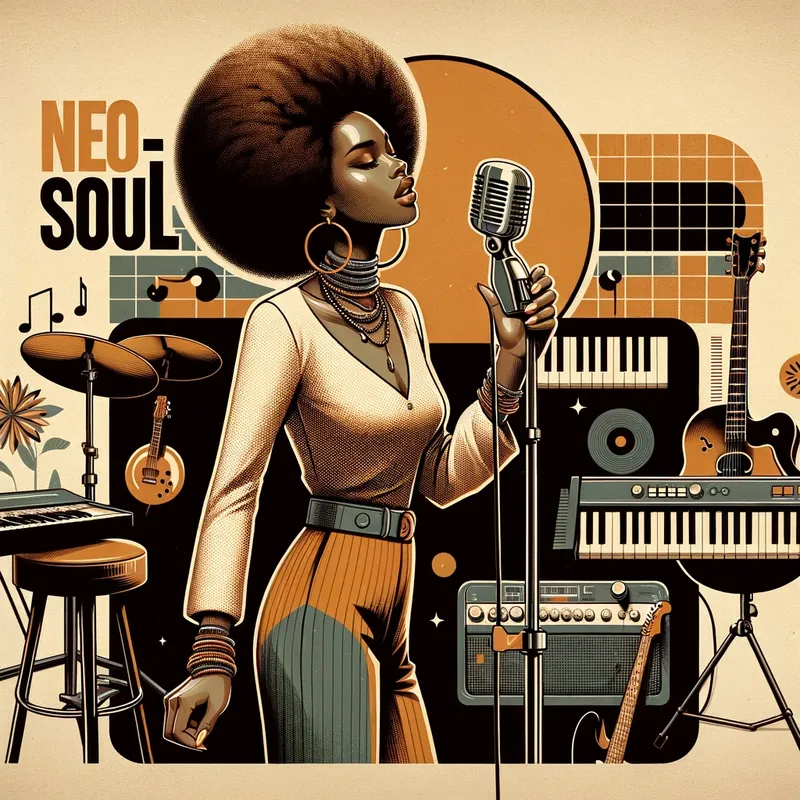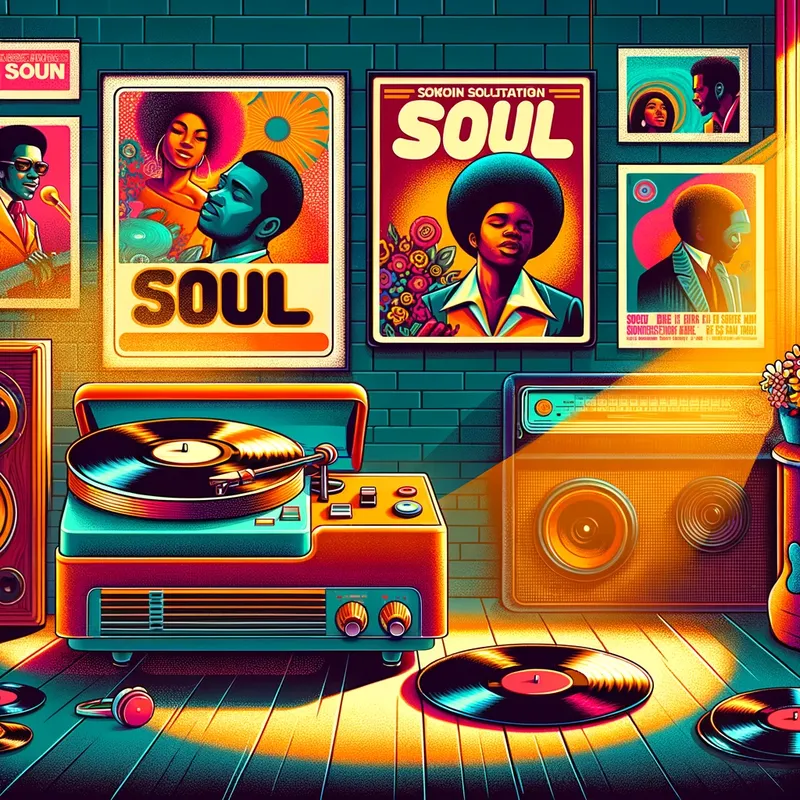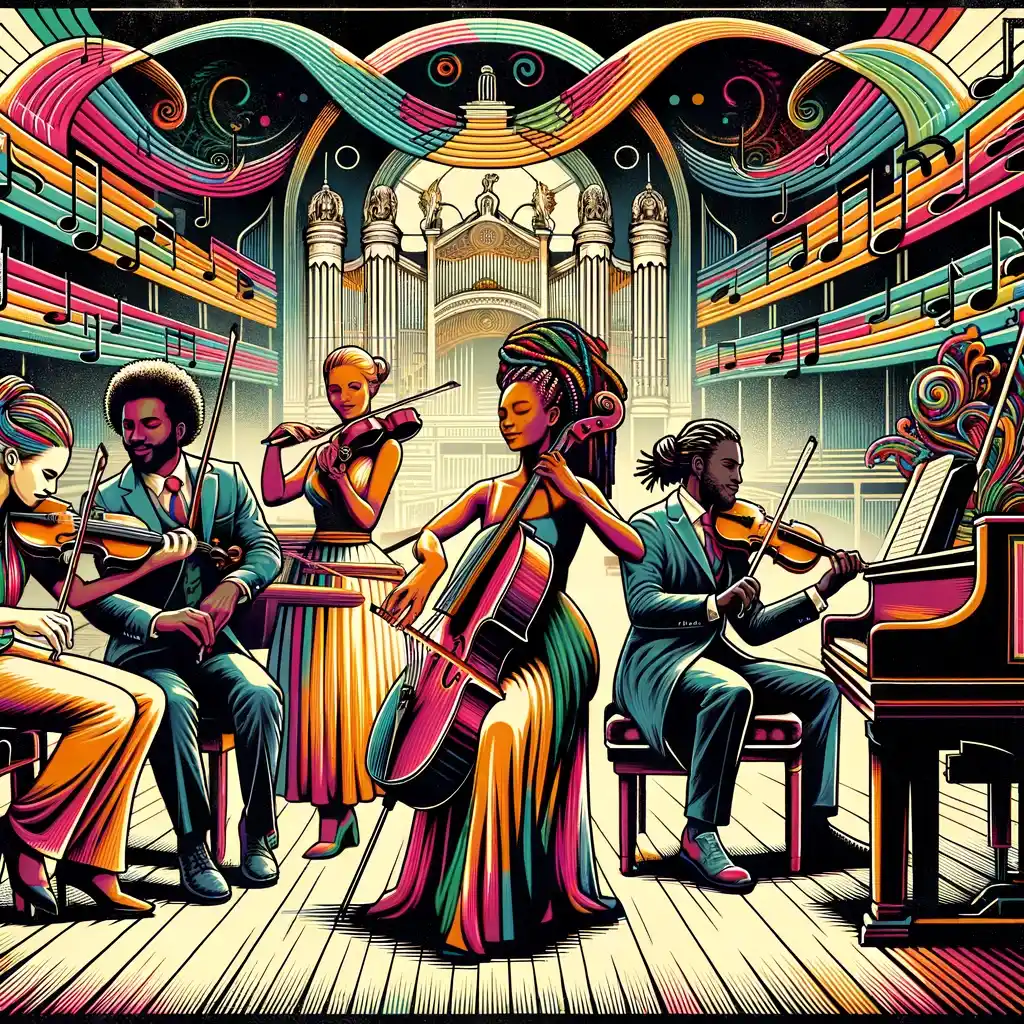Soul Music
Soul music is the love child of Gospel, Rhythm and Blues (R&B), and a sprinkle of Jazz.
Table of Contents
Origins
Born in the late 1950s and reaching its zenith in the 60s and 70s, Soul took what Gospel had – emotional intensity – and mixed it with the secular narratives and instrumentations of R&B and Jazz. This was the era when African American culture was in a period of self-discovery and expression, and Soul music became its voice.
Subgenres
Southern Soul
Down in the Delta of the Mississippi River, Southern Soul was born. Otis Redding and Wilson Pickett put a little country twang in their tunes.
Motown Soul
Hailing from Detroit, Motown Soul is all about that polish and finesse. Among the artists are The Supremes, Stevie Wonder, and Marvin Gaye.
Philly Soul
Philly Soul is the sub-genre that’s smoother than butter on hot toast. Artists like Teddy Pendergrass and The O’Jays put the “class” in “classic,” bringin’ in strings, lush harmonies, and arrangements that make you wanna slow dance all night long.
Funk Soul
Funk Soul is the life of the party. Heavy bass lines and a focus on rhythm over melody. Artists like George Clinton and Parliament Funkadelic took Soul, sprinkled some psychedelia, and came up with a whole new vibe.
Neo-Soul
With artists like Lauryn Hill, Erykah Badu, and D’Angelo, Neo-Soul blends the traditional with the contemporary. It’s jazzy, it’s poetic, and it’s got layers.
British Soul
British Soul artists like Amy Winehouse, Adele, and Sam Smith brought their own flavor to this genre.
Pioneers and Legends of Soul
There are some names you just gotta know when you talk about Soul music.
Aretha Franklin
The Queen of Soul! Aretha brought church into the popular music arena and gave us hits like “Respect.”
Marvin Gaye
The Prince of Soul, Marvin gave us classics like “What’s Going On” and “Sexual Healing.” His music often delved into social issues, romance, and self-examination.
Otis Redding
The King of Soul brought us timeless songs like “(Sittin’ On) The Dock of the Bay,” capturing raw emotion.
James Brown
James Brown is a legend that transcends categories. “I Feel Good” and “Papa’s Got a Brand New Bag” barely scratch the surface of his genius.
Sam Cooke
Known for his smooth and sophisticated voice, he gave us songs like “A Change Is Gonna Come,” which became an anthem for the Civil Rights Movement.
Instruments and Vocals
While Soul is more about the feeling you get rather than specific instruments, there are some sounds that fit the genre:
- Hammond Organ: The creamy, rich tones of the Hammond are a staple.
- Horn Sections: Saxophones, trumpets, and trombones add a jazzy flair.
- Guitar: Often smooth and rhythmic, but can also break into bluesy solos.
- Bass: The unsung hero, laying down grooves that get your feet tapping.
- Drums: Rhythms that can be both laid-back and energetic, often simultaneously.
- Vocals: Arguably the most important instrument. Soulful vocals are expressive, dynamic, and packed with emotion.
The Evolution of Soul Music
60s: Classic Soul
Think Motown, Stax, and Atlantic Records. This decade laid the foundation.
70s: The Soul-Funk Fusion
The disco era saw soul fuse with funk, creating iconic anthems.
80s and 90s: Neo-Soul and Contemporary R&B
While the ‘60s and ‘70s were the golden age of soul, the ‘90s brought us Neo-Soul, introducing us to artists like Erykah Badu and D’Angelo who gave the genre a modern twist.
2000s and Beyond: The Fusion Continues
With the rise of digital music, Soul has continued to evolve, blending with genres like Hip-Hop, Electronic, and even Country.
Today’s generation of artists like H.E.R., Leon Bridges, and Jorja Smith are carrying the soul torch.
Why Soul Music Matters
Soul music ain’t just about the notes or the rhythm; it’s a platform. From the Civil Rights Movement to the Black Lives Matter era, soul music has been a voice for social change.
